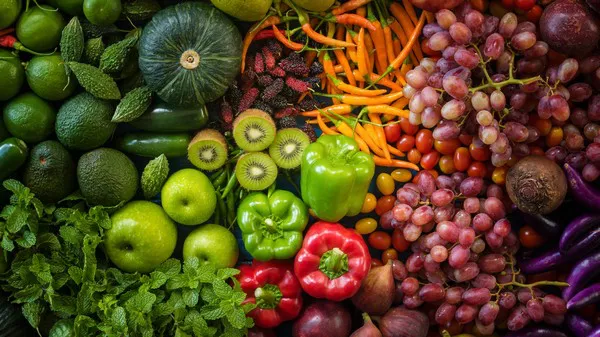As more individuals embrace veganism, a plant-based lifestyle that excludes animal products, the spotlight on vitamins and vegans intensifies. While a well-planned vegan diet can be rich in nutrients, certain vitamins may pose challenges for those exclusively consuming plant-based foods. This comprehensive article explores the essential vitamins for vegans, shedding light on their roles, potential dietary sources, and the importance of mindful supplementation. From supporting energy metabolism to ensuring bone health, understanding the nuances of vitamins and vegans is crucial for maintaining optimal well-being within the vegan community.
Vitamin B12
At the forefront of discussions about vitamins and vegans is vitamin B12, a crucial nutrient primarily found in animal products. As a water-soluble vitamin essential for neurological function and the formation of red blood cells, B12 is of particular concern for vegans. While some plant-based foods are fortified with B12, supplementation is often recommended to ensure adequate intake. B12 deficiency can lead to anemia and neurological issues, emphasizing the pivotal role of this vitamin for vegans in maintaining overall health.
Vitamin D
Vitamin D, often associated with exposure to sunlight, is a critical player in bone health and immune function. For vegans, obtaining sufficient vitamin D solely from diet can be challenging, as natural food sources are limited. Fortified plant-based milk and cereals are options, but sunlight exposure and supplementation are often necessary. Ensuring optimal vitamin D levels is vital for calcium absorption, bone mineralization, and overall immune system support, underlining its significance in the realm of vitamins and vegans.
Iron
Iron, an essential mineral for transporting oxygen in the blood, is another focal point in the discussion of vitamins and vegans. While plant-based iron is abundant in foods like lentils, beans, and spinach, it is non-heme iron, which is less readily absorbed than heme iron from animal sources. To enhance absorption, vegans can consume vitamin C-rich foods alongside iron-rich plant foods. Additionally, iron supplementation might be considered, especially for individuals with increased iron needs, such as menstruating individuals or those with certain health conditions.
Calcium
Bone health remains a priority within the spectrum of vitamins and vegans, with calcium taking center stage. While dairy products are traditional calcium sources, vegans can obtain this essential mineral from fortified plant-based milk, tofu, kale, and almonds. Ensuring an adequate calcium intake is vital for vegans to support bone density and prevent the risk of osteoporosis. Combining a variety of calcium-rich foods with vitamin D and weight-bearing exercises enhances calcium absorption and contributes to optimal bone health in the vegan population.
Omega-3 Fatty Acids
Omega-3 fatty acids, particularly EPA and DHA, are vital for brain and heart health. While fatty fish is a common source, vegans can obtain omega-3s from plant-based options like flaxseeds, chia seeds, and walnuts. However, these sources provide ALA, a precursor that the body converts to EPA and DHA. To ensure sufficient intake, vegans may consider algae-based supplements, which directly provide DHA. Balancing omega-3 and omega-6 ratios is crucial for overall health, underscoring the importance of mindful nutrition for vitamins and vegans.
Zinc
Zinc, an essential mineral for immune function and wound healing, is intertwined with discussions about vitamins and vegans. While plant-based foods like beans, lentils, and seeds contain zinc, the form, and the presence of phytates in plant foods can affect absorption. Vegans may need to ensure adequate zinc intake through a varied and well-balanced diet, considering supplementation if necessary. Maintaining optimal zinc levels is essential for supporting the immune system and overall health in the vegan community.
Iodine
Iodine, crucial for thyroid function and the production of thyroid hormones, deserves attention in the context of vitamins and vegans. While iodine is naturally present in seaweed, its content can vary, and excessive intake may pose risks. Vegans should monitor their iodine levels and consider iodine supplementation if dietary intake is insufficient. Ensuring thyroid health is paramount, as iodine deficiency can lead to thyroid disorders, emphasizing the need for conscientious iodine management in the vegan diet.
Protein
While not a vitamin, protein is a fundamental nutrient that warrants discussion in the context of vitamins and vegans. Ensuring an adequate protein intake is essential for muscle maintenance, immune function, and overall health. While plant-based protein sources abound—such as legumes, tofu, tempeh, and quinoa—vegans must prioritize variety and quantity to meet their protein needs. Additionally, considering protein complementation and, if needed, protein supplementation can contribute to a well-rounded vegan diet that supports optimal health.
Vitamin K
Vitamin K, essential for blood clotting and bone metabolism, is integral to the conversation about vitamins and vegans. While vitamin K1 is abundant in green leafy vegetables like kale and spinach, vitamin K2 is predominantly found in animal products. For vegans, fermented plant-based foods like sauerkraut and natto can provide K2 precursors. Ensuring a consistent intake of vitamin K through a varied diet supports blood clotting and bone health, highlighting its role in the comprehensive nutritional profile for vegans.
Vitamin A
Vitamin A, crucial for vision, immune function, and skin health, is obtained by vegans through plant-derived precursors like beta-carotene. Carotenoid-rich foods such as sweet potatoes, carrots, and kale contribute to vitamin A intake. While the body converts beta-carotene into active vitamin A, it’s essential for vegans to monitor their levels and, if needed, consider vitamin A supplementation. Maintaining adequate vitamin A levels supports optimal eye health and overall well-being within the vegan lifestyle.
Conclusion
In conclusion, the interplay between vitamins and vegans underscores the importance of a well-planned and nutrient-rich vegan lifestyle. From B12 to omega-3s, ensuring adequate intake of essential vitamins and minerals requires diligence, variety, and sometimes supplementation. Veganism can be a healthful and sustainable choice, but it demands awareness of potential nutritional gaps. By embracing a diverse and balanced diet, monitoring nutrient levels, and, when necessary, considering supplements, vegans can navigate the landscape of vitamins with confidence, ensuring they thrive in both their ethical choices and their nutritional well-being.
[inline_related_posts title=”You Might Be Interested In” title_align=”left” style=”list” number=”6″ align=”none” ids=”3646,3600,3598″ by=”categories” orderby=”rand” order=”DESC” hide_thumb=”no” thumb_right=”no” views=”no” date=”yes” grid_columns=”2″ post_type=”” tax=””]
































